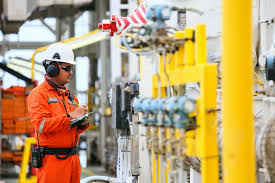Independent inspection services play a crucial role in ensuring the quality and conformity of products and services. Companies rely on these...
Independent inspection services play a crucial role in ensuring the quality and conformity of products and services. Companies rely on these services to maintain quality standards and regulatory compliance. Independent inspections provide an unbiased and third-party assessment of products, processes, and facilities, ensuring that they adhere to established standards and regulations. By providing an objective evaluation, independent inspection services help to build trust and confidence in the quality of goods and services. In this article, we will discuss the importance of ensuring quality with independent inspection services and the benefits they bring to businesses and consumers.
Independent inspection services are essential for ensuring the quality of products and services. These services are conducted by impartial and qualified professionals who have the expertise to thoroughly evaluate and verify the quality of a wide range of products, from consumer goods to industrial equipment. By engaging independent inspection services, businesses can ensure that their products meet industry standards and regulations, as well as the specific requirements of their customers. This helps to prevent defects and non-conformities, ultimately saving time and money by avoiding costly rework or product recalls. Independent inspection services also play a crucial role in supply chain management by providing transparency and accountability. By having an independent third party oversee the quality of goods at various stages of production, businesses can mitigate risks and maintain the integrity of their supply chain. Overall, independent inspection services are a valuable tool for businesses to maintain quality control, build trust with customers, and ultimately drive success in the marketplace.
Independent inspection services are an essential component of quality assurance for businesses. These services involve engaging third-party inspection professionals to assess and verify the quality of products, processes, or facilities. The independent nature of these inspections ensures an unbiased and objective evaluation, providing businesses with reliable insights into the quality of their offerings. Independent inspection services typically cover a wide range of industries and products, including manufacturing, construction, agriculture, consumer goods, and more. The inspectors are often highly trained and knowledgeable in industry-specific standards, regulations, and best practices, allowing them to thoroughly assess compliance and quality. By leveraging independent inspection services, businesses can identify potential issues early in the production or supply chain process, leading to improved quality control, reduced risks, and ultimately, cost savings. This is particularly crucial for companies involved in international trade, where compliance with diverse regulatory requirements is paramount. Overall, independent inspection services contribute significantly to maintaining and enhancing the quality of products and processes, which is essential for building consumer trust and ensuring long-term business success.
The Importance of Independent Inspection for Quality Assurance

Independent inspection for quality assurance is crucial in ensuring that products, systems, and processes meet defined standards and specifications. It provides an unbiased and objective evaluation of the quality of goods and services, helping to identify and rectify any potential defects or deficiencies. Independent inspection helps to build consumer confidence by ensuring that products meet safety and performance requirements. It also helps to prevent the circulation of substandard or non-compliant products in the market, thereby protecting the reputation of manufacturers and suppliers. Additionally, independent inspection can help businesses identify areas for improvement in their operations, leading to increased efficiency and cost savings. By providing an outside perspective, independent inspectors can offer valuable recommendations for process optimization and quality enhancement. Overall, independent inspection is essential for maintaining and improving the quality of goods and services, ensuring compliance with regulations, and fostering trust and confidence in the marketplace.
The Benefits of Independent Inspection in Manufacturing

Independent inspection in manufacturing provides several benefits. Firstly, it helps to ensure that products meet quality standards and regulatory requirements. By having an independent party conduct inspections, manufacturers can gain valuable insights and feedback on their production processes, allowing them to identify and address any potential issues or areas for improvement. Additionally, independent inspections can help to reduce the risk of product recalls and liability issues, as well as improve overall customer satisfaction by delivering consistently high-quality products. Overall, independent inspection plays a crucial role in maintaining quality control and ensuring the integrity of manufacturing processes.
How Independent Inspection Ensures Product Safety

Independent inspection ensures product safety by verifying that products meet a set of safety and quality standards. This process involves examining and testing products to ensure they meet specific requirements and regulations, ultimately giving consumers the assurance that the products they are purchasing are safe and of high quality. Inspectors are trained to identify potential hazards and defects, and their independent and unbiased perspective helps to ensure that the inspection process is thorough and accurate. This helps to prevent potential risks and hazards, and ultimately protects consumers from purchasing unsafe products. Additionally, independent inspection can also help to identify any potential issues in the manufacturing process, allowing for necessary adjustments to be made to improve product safety and quality.
The Role of Independent Inspection in Construction Projects

Independent inspection in construction projects plays a crucial role in ensuring compliance with building codes, standards, and regulations. It helps to identify potential safety hazards, structural defects, and quality issues. Independent inspectors can provide impartial assessments of the construction process, materials, and workmanship, helping to mitigate risks and ensure the overall integrity of the project. Their involvement also contributes to fostering trust and transparency among stakeholders, including clients, contractors, and regulatory bodies. Ultimately, independent inspection serves to protect the interests of all parties involved and deliver projects that are built to the highest standards.
Independent Inspection: Ensuring Compliance with Regulations
third party inspection agency
Independent inspection involves the assessment of a company's facilities, procedures, and products to ensure compliance with relevant regulations and standards. This can include inspections of manufacturing processes, quality control measures, and adherence to environmental, health, and safety regulations. Independent inspectors are often employed by regulatory agencies or contracted by companies to provide objective assessments of their operations. The goal of independent inspection is to identify and address any non-compliance issues to ensure the safety, quality, and legality of products and operations.
The Value of Independent Inspection in Food Production
The value of independent inspection in food production lies in its ability to provide an impartial evaluation of the production process, ensuring that food safety and quality standards are met. Independent inspectors are not influenced by internal biases or concerns, and their objective evaluations help to identify any potential issues or inconsistencies in the production process. This is crucial in maintaining consumer trust and ensuring that the food supply is safe and of high quality. Additionally, independent inspection can also help food producers identify areas for improvement and best practices to enhance their overall operations.
Understanding the Process of Independent Inspection
Understanding the process of independent inspection involves gaining a thorough understanding of the standards and criteria that are being used to evaluate the inspected item or process. Independent inspectors must be knowledgeable about the industry and have a strong understanding of the regulations and guidelines that govern the inspection process. They must also be able to conduct inspections impartially, and report their findings accurately and objectively. Additionally, independent inspectors must be skilled at collecting and analyzing data, as well as communicating their findings to relevant stakeholders. Overall, the process of independent inspection requires a high level of expertise, integrity, and attention to detail.
Challenges and Best Practices in Independent Inspection
Challenges in independent inspection include ensuring that the inspectors are impartial and unbiased, as well as ensuring that they have the necessary expertise and qualifications to perform the inspection accurately. Additionally, coordinating and scheduling inspections can be a logistical challenge, especially when dealing with multiple parties and locations. Best practices in independent inspection include establishing clear and transparent processes for selecting and hiring inspectors, as well as providing them with the necessary tools and resources to perform their jobs effectively. It is also important to establish open lines of communication between the inspectors, the organization commissioning the inspection, and any other relevant stakeholders to ensure that the inspection is carried out efficiently and accurately. Additionally, maintaining thorough documentation of the inspection process and findings is essential for accountability and compliance purposes.
In conclusion, independent inspection services play a crucial role in ensuring the quality and reliability of products and services. By providing unbiased and thorough evaluations, independent inspectors help businesses and consumers make informed decisions. With their expertise and objectivity, independent inspection services contribute to maintaining high standards and building trust in various industries. Therefore, it is essential for organizations to prioritize independent inspection in their quality assurance processes to uphold their reputation and meet the expectations of their stakeholders.
third party inspection agency

